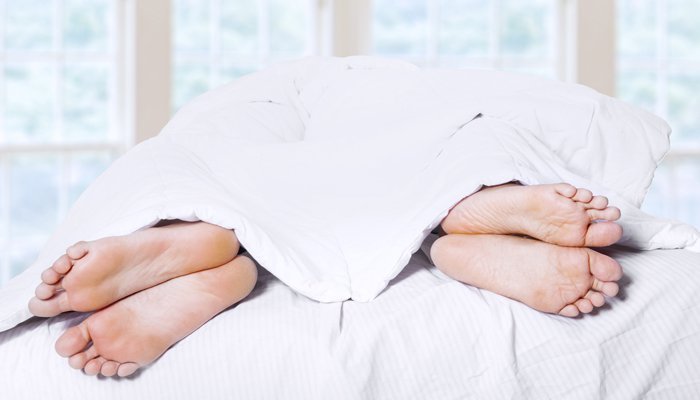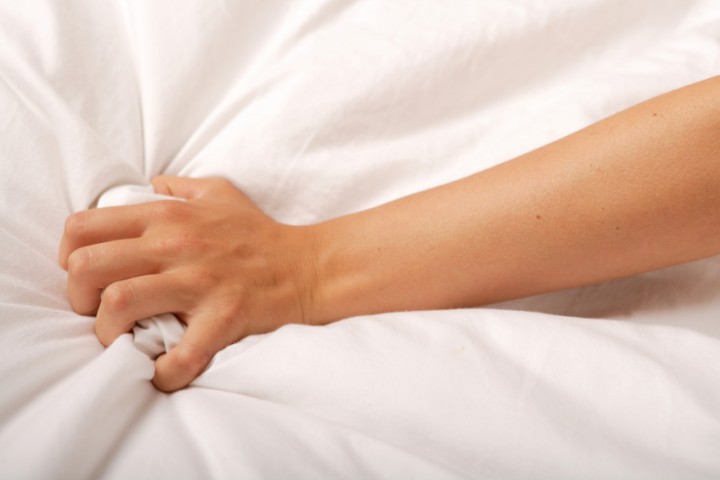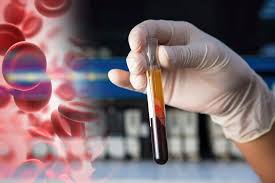For ladies who have never experienced childbirth, pushing a tiny human out through the small vagina seems like an impossible superhuman feat, but the vagina was designed to do this. It is something hard to imagine, but your baby will really be able to make his way through the birth canal and out the vaginal opening.

How the Vagina Stretches During Childbirth
From the beginning of pregnancy, the body has been preparing for the eventual birth by releasing two types of hormones, which are estrogen and relaxin. Estrogen increases blood flow to the folds of the vagina to help the elastic connective tissue expand and stretch during childbirth as you push. Meanwhile, relaxin helps your body to relax and loosen the ligaments and joints in the pelvis to enable it to expand and create space for the baby to come out.
How much your vagina stretches during childbirth depends on your genes, the size of your baby, and whether or not you did pelvic floor exercises during pregnancy to tone those muscles leading up to the childbirth. Besides that, the circumstances of the birth, such as how long you pushed and whether forceps or vacuum extraction was used, could affect the childbirth. Lastly, the number of deliveries you have had before will have an effect, because of how toned or previously stretched your vaginal opening already is. Each birth will likely stretch your vagina some more.
5 Ways the Vagina Changes After Childbirth

1 – Dryness
During pregnancy, your estrogen levels are high. Estrogen helps to keep your vaginal tissue moist with a clear lubricating fluid. After childbirth, estrogen levels drop. Without enough estrogen, your vagina can become dry. Moreover, your vaginal tissue can shrink and become thinner. Breastfeeding will keep the estrogen levels low, and sometimes this situation leads to ‘postpartum menopause’, where you will be dry the whole time you are breastfeeding. Once you stop nursing, your vagina will revert back to being moist again.
In the meantime, you will feel soreness during sex because of the dryness of your vagina, but using a lubricant should help alleviate this situation. However, this soreness can also affect you when you are not having sex as well. If you are experiencing uncomfortable soreness and dryness, ask your doctor about vaginal lubricants or moisturizers that can help ease your discomfort.

2 – Soreness in the Vagina & Perineum
Some kind of tearing will happen in 53-79 percent of vaginal deliveries. The area between your vagina and anus, called the perineum, can also tear during a vaginal delivery, even though it is not specifically a part of your vagina.
No matter the degree, if you tear during your delivery or your doctor cuts the area, in a procedure known as an episiotomy, you will be feeling sore while it heals. Episiotomy used to be more common but is now typically done when an infant is large or gets stuck on the way out.
To soothe the pain, you can try applying ice packs to the area. You can also use a squeeze bottle to douse the area in warm water while peeing.

3 – Scar Tissue & Pain During Sex
If you experienced a tear or episiotomy after a vaginal delivery, you might have some scar tissue in your vagina or on your perineum after your vagina recovers. Initially, having sex might be uncomfortable, but the scar tissue will usually heal over time. In the meantime, you should use lots of lubricant. However, if it does not get better after some time, you should consult your doctor. There are some women who might need surgery to remove the scar tissue to get rid of the pain.

4 – Peeing Whilst Jumping
After childbirth, your pelvic floor changes. One of the marked changes you might experience is peeing from doing basic things like walking downhill, jumping jacks, and even laughing and sneezing. This is because childbirth can damage your pelvic floor, which consists of muscles and other tissues that help keep your organs including the uterus, bladder, and bowel in the right positions so they work correctly. Childbirth can also affect the muscles and nerves that control your bladder and urethra, where pee leaves your body. All of this can lead to pee leaking out at improper moments, but the good news is this will improve over time.

5 – Weaker Orgasm
If your pelvic floor has weakened due to childbirth, you may experience weaker orgasms. The muscles of the vagina and uterus produce powerful, rhythmic contractions during orgasm. These contractions give pleasure because they release muscle tension built up during the excitement and plateau phases. Because of the weakened pelvic floor, these contractions might not feel as powerful as they used to. However, you can strengthen your pelvic floor by doing Kegels, so you can regain some of that intensity over time.

What is PRP Vaginal Rejuvenation?
Platelet-rich plasma (PRP) vaginal therapy is a non-invasive and in-office medical treatment. It is a medical procedure that enhances sexual performance for women, designed to improve desire and pleasure.
PRP vaginal rejuvenation works by using your own platelet-rich plasma (PRP) to stimulate stem cells and growth factors to regenerate tissue for a healthier vagina. The patient’s blood is drawn and placed in a centrifuge for 15 minutes to separate out the platelets. Then, the platelet-rich plasma is then injected into target areas. This plasma is rich in platelets, stem cells, and growth factors. It is very useful for tissue regeneration and healing.
Contact Us for a Consultation
If you would like to know more about PRP vaginal rejuvenation, please do not hesitate to give us a call at 012-662 5552 (TTDI/Bangsar/KL City branch) or 016-706 0101 (Puchong branch) to schedule a free consultation session.
Alternatively, you may email us at contactus@premier-clinic.com and we will get back to you as soon as we can.
To ensure your comfort and privacy, you will undergo consultation and treatment attended exclusively by female doctors.
Read More:
4 Benefits of Laser Vaginal Rejuvenation You Need To Know
What is Laser Vaginal Rejuvenation?

